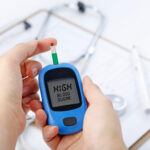
In this article
Heart failure occurs when the heart muscle is unable to pump blood effectively. This can cause blood to back up and fluid to accumulate in the lungs, leading to shortness of breath. Several conditions can gradually weaken or stiffen the heart, making it difficult to pump blood efficiently. These conditions include narrowed arteries in the heart and high blood pressure.
Proper treatment can alleviate the symptoms of heart failure and may extend the lives of those affected. Lifestyle changes, such as losing weight, exercising, reducing salt intake, and managing stress, can improve the quality of life for people with heart failure. However, heart failure can be life-threatening, with some individuals requiring a heart transplant or a device to help the heart pump blood. It is also known as congestive heart failure.
Symptoms
Heart failure means the heart can’t supply enough blood to meet the body’s needs. Symptoms can develop gradually or appear suddenly, and they may include:
- Shortness of breath during activity or while lying down.
- Fatigue and weakness.
- Swelling in the legs, ankles, and feet.
- Rapid or irregular heartbeat.
- Reduced ability to exercise.
- Wheezing.
- Persistent cough, sometimes producing white or pink mucus with blood spots.
- Abdominal swelling.
- Rapid weight gain due to fluid buildup.
- Nausea and loss of appetite.
- Difficulty concentrating or decreased alertness.
- Chest pain, especially if heart failure is due to a heart attack.
When to See a Doctor
Consult your healthcare provider if you suspect you have symptoms of heart failure. Seek emergency medical help if you experience:
- Chest pain.
- Fainting or severe weakness.
- Rapid or irregular heartbeat accompanied by shortness of breath, chest pain, or fainting.
- Sudden, severe shortness of breath and coughing up white or pink, foamy mucus.
These symptoms may indicate heart failure, but other conditions can cause similar symptoms. Do not attempt self-diagnosis. In an emergency room, healthcare providers will perform tests to determine if your symptoms are due to heart failure or another cause.
Managing Heart Failure
Contact your healthcare provider immediately if you have heart failure and:
- Your symptoms suddenly worsen.
- You develop a new symptom.
- You gain 5 pounds (2.3 kilograms) or more within a few days.
Such changes could indicate that heart failure is worsening or that current treatments are not effective
A Quick Review
Heart failure happens when the heart muscle cannot pump blood efficiently, causing symptoms like shortness of breath, fatigue, and swelling. It can be life-threatening, requiring immediate medical attention for severe cases. Proper treatment and lifestyle changes can significantly improve symptoms and quality of life.











